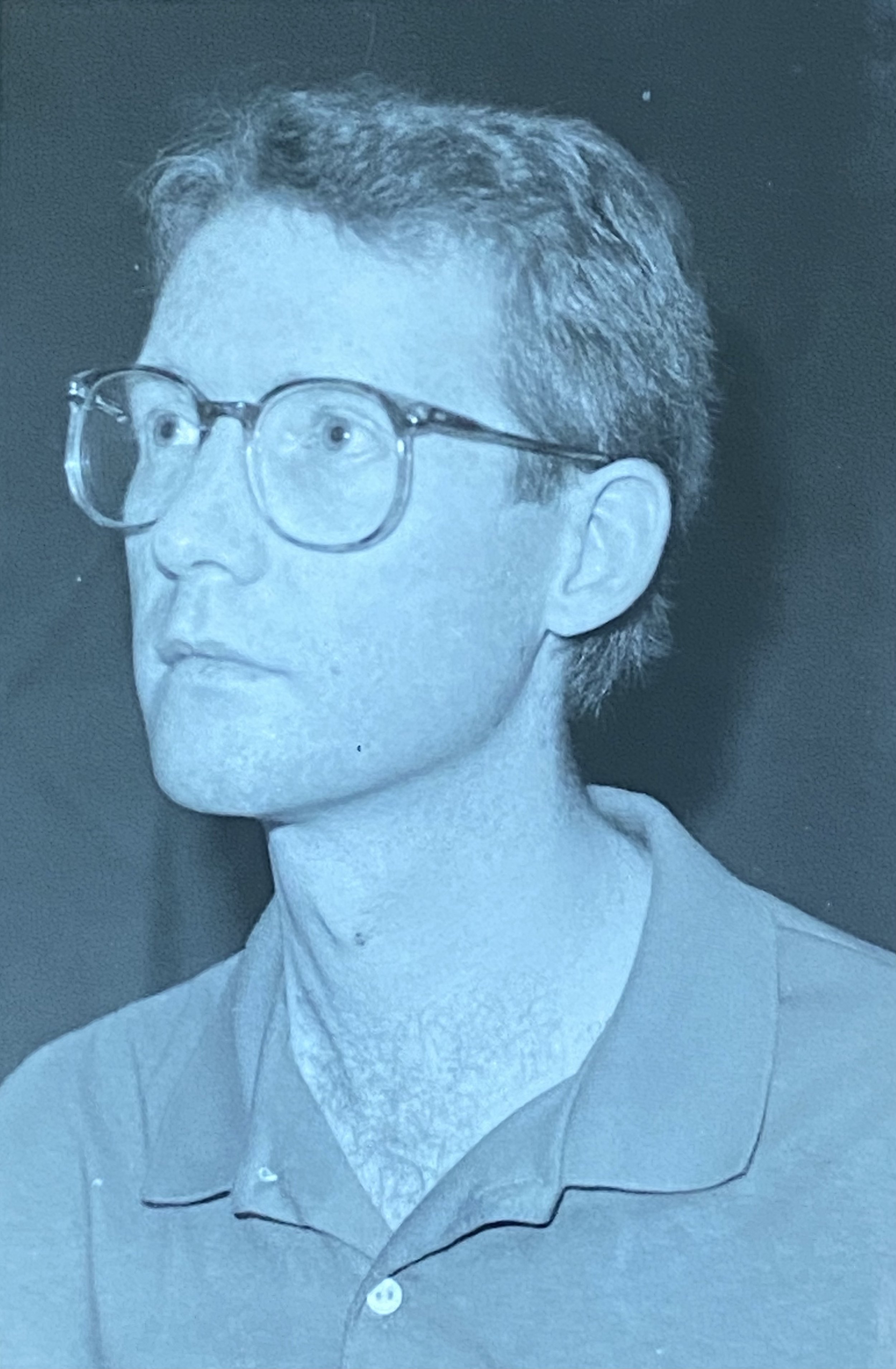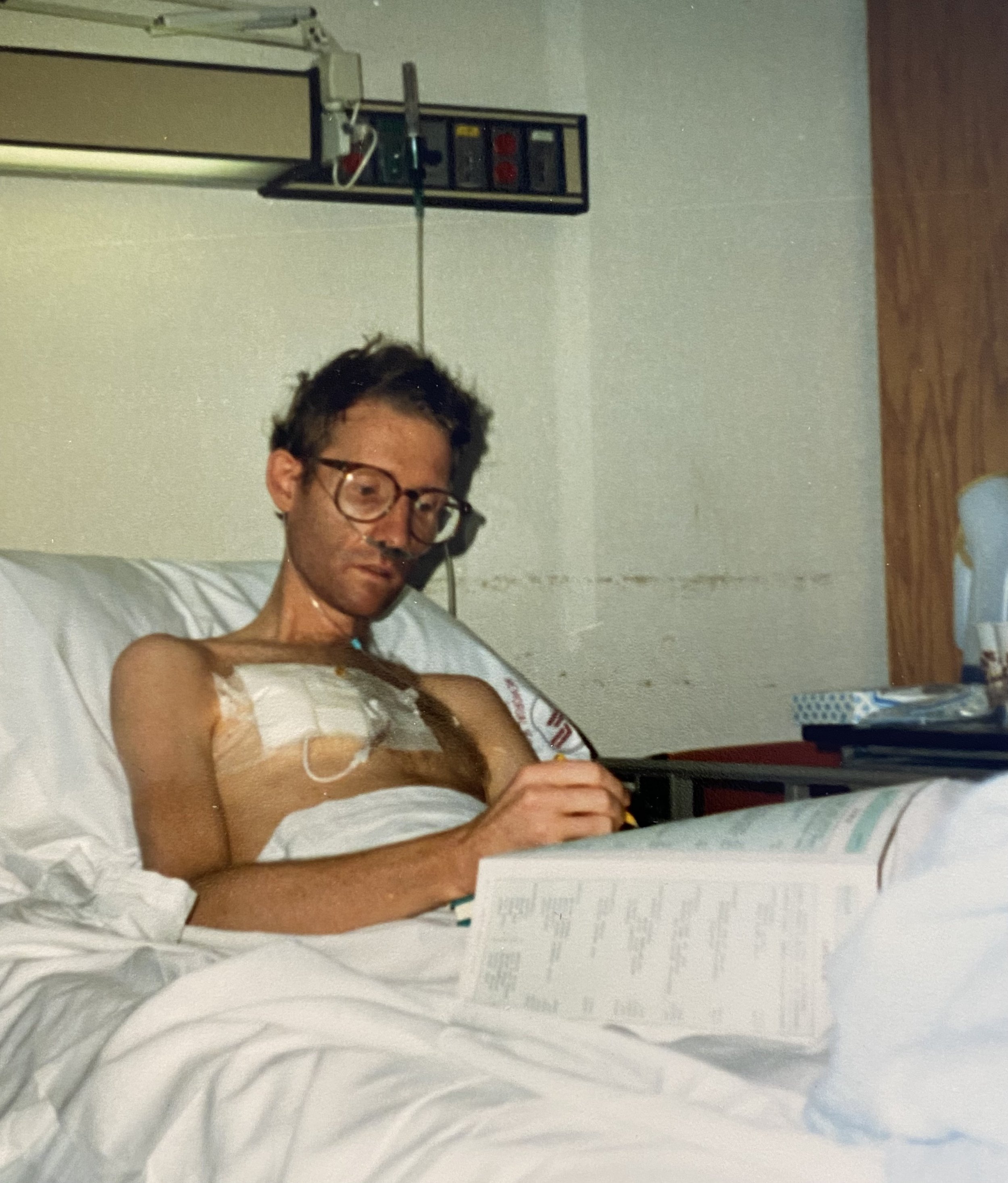The Bittersweetness of Loss
Keith Smith (right) and a friend at a conference in San Francisco
Keith Smith was the divine affirmation I’d asked for when I was considering working with gay men. I knew the conservative circles I ran in would include those who would be against it. This was 1983. I brought it up with a few board members. One board member’s sage wisdom was, “Mike, people are down on what they’re not up on”. So true, yet I trudged on. Keith moved to Nashville that year. He joined the groups I facilitated. He came to our church, was in the singles class Jeannie and I taught. Keith was often at our house. Even babysat our girls. I met his parents in Waynesville, NC. Jo, his mom, made some delicious pickled green tomatoes that were great on nachos.
Keith Smith before the disease
Keith decided to go to college in Colorado Springs in the fall of 1985. After driving out to Colorado as a family to see him over the Christmas holidays that year, he called in January to say he was HIV+. I hadn’t known anyone personally with HIV. People were freaking out over HIV/AIDS. I did for a while myself wondering if I’d exposed my family. There was very little research available but I found an article on the hemophiliac community that convinced me HIV was not casually transmitted. Even though a dad and a son had HIV, the mother or sisters did not. That first few years of HIV were very similar to 2020 and COVID with the exception that most with HIV at that point were gay—so there was a moral component. Fauci was our go to man back then as well. I had multiple flashbacks during 2020. Keith returned to Nashville the summer of 1987 already having lost forty of his 180 pounds. I’d not actually seen him and tried but failed to hide my shock when I opened the front door. Within the week he got gravely ill and hospitalized so it was imperative that he/we tell his parents everything. Jo and Hallet did not even know he was gay. I can still picture that day standing at the end of his hospital bed, Jo on the left, Hallet on the right. Their response was all you could ask for. His dad said with his southern drawl, “well, I don’t know anything about any of this, but you are our son and we’ll take you home and care for you”. More tears. And they did take him home to a beautiful setting in the Smokies of North Carolina.
Keith Smith June 19, 1959-October 30, 1989
Fast forward to the fall of 1989, in the hospital again this time in Ashville, North Carolina. I’d been there for the weekend so on Sunday afternoon I took a walk away from the hospital to a nearby church, Episcopal as I recall. That is where I first saw, and bought these two plaques. They summarized the mess of feelings I couldn’t begin to verbalize at the time. Both hung in my office for the duration of my practice.
Keith died a few days later. I gave his eulogy. As a family we’d grown to love Keith. He was thirty when he died, ten years younger than I was at that time. Jeannie and the girls attended his funeral. From that last hospital bed looking much like a man from a Nazi concentration camp at around eighty pounds, Keith said to me—prefacing his statement with, “I am not out of my mind, or crazy” which immediately peaked my ears up. He went on, “I am grateful for all of this”. He had sent me a note weeks before quoting Isaiah 40 ‘God gives strength to the weary increasing the power of the weak—but those who hope in the Lord will renew their strength—and go on to soar’.
I hesitated including this photo but then I recalled Keith had wanted an open casket to show what the disease had done
There is something about suffering—the sufferings of others and my own—that changes us, or at least can. Not sure anyone can explain it. It must be lived through. Even though I still grieve and regret the loss of Keith and the several other men who died that winter, I too can say I am grateful, strangely thankful. The depth of our love is directly proportional to the depth of suffering we’ve known. Our culture, even the church rarely instructs us well regarding death. We do all sorts of things—addictions—to avoid it but as is said, it and taxes are unavoidable.
The scriptures say that will can only know Christ in the fellowship of his suffering. The sufferings I have known have increasingly made me sensitive to the sufferings all around me. These shared sufferings also fall on the broad shoulders of God as well. I am yoked together with the One who made me making these sufferings possible to bear (not that there aren’t still moments of question). This doesn’t make me somehow super-human. For many month of 1990 I was seriously depressed taking anti-depressants. Dark thoughts at times came over me thinking the rest of my life would be one loss after another. I tried to get my mind off of the losses by taking a class in stained glass. I figured it required concentration on what I was doing or I’d slice up my fingers. It helped some. But then I was invited to be on a ninety person People to People team going to China for three weeks meeting Chinese professionals around the topic of AIDS. A number of family members of the men who had died sent money to help with the expense. I returned two days before Thanksgiving 1990 very thankful and in a different head space.
The plaques from Ashville still hang in my study reminding me, if I pause long enough, of the bittersweet nature of living, really authentically living. I now believe we don’t really know how to live until we’ve faced death. That is at the core of what we claim as our faith.
A side trip in the Smokies with Keith.
Being on the front lines with Keith and others in 1986, we began an AIDS support program for these men and their families. One board member called me to his office telling me to immediately stop. It stunned me in that he was a physician. When another board member heard that I was co-facilitating the Nashville Cares family support group for parents and family members of these men, he told me I would do no such thing. I told him it was on my own time that I was continuing. Other hate letters came telling me I was going to burn in hell for helping.
One of the plaques, a Rilke quote I have quoted many, many times.
As difficult as it was, Keith was a continual blessing, a confirmation in multiple ways. I’ll forever be grateful. I would not change any of the choices I made. I just wish these guys had lived a few years more until the drug cocktail was available enabling them to live a full life. I’ve lived on to tell you just one of their stories here.
Camus wrote this in the midst of the plague.







